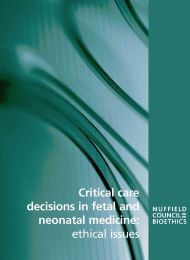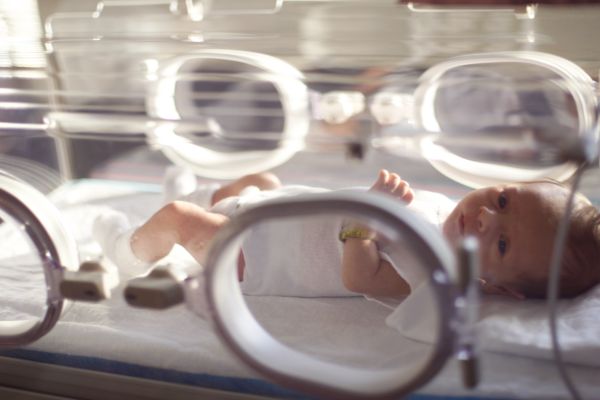Critical care decisions in fetal and neonatal medicine: ethical issues
Report
Published 15/11/2006

The moral status of the fetus
Under English law, fetuses have no independent legal status. Once born, babies have the same rights to life as other people. This legal distinction is at odds with the teachings of many faiths and, for some, their moral intuitions.
For example, there are people who think that the human embryo, from the moment of conception, has the same moral status as a born living human person. For others, the threshold relates to various stages of development of the central nervous system, even continuing after birth. Yet others consider the point of birth to be highly significant, as a new and independent being has been brought into existence.
We conclude
The Working Party regards the moment of birth as the significant moral and legal point of transition for judgements about preserving life. In this respect, children of six days, months or years are each worthy of equal consideration.
The sanctity of life
An absolute interpretation of the doctrine of the ‘sanctity of life’ is that taking human life is categorically wrong and it is never permissible not to strive to preserve the life of a baby. However, the Working Party believes that under some circumstances preserving the life of a baby can only lead to an ‘intolerable’ existence.
The Working Party struggled, as have others, to define when the degree of suffering caused by continuing active treatment outweighs the benefits of the treatment to the baby. By ‘intolerable’ we mean an extreme level of suffering or impairment which is either present in an individual baby or may develop in the future. Our use of ‘intolerability’ embraces all three situations recognised by the Royal College of Paediatrics and Child Health: ‘no chance’, ‘no purpose’ and ‘unbearable’.
We conclude
For some babies, whose quality of life is what we would describe as ‘intolerable’, an insistence that their lives must always be preserved, regardless of suffering, is inhumane and of no possible benefit to them.
Quality of life
Quality of life usually refers to a person’s emotional, social and physical wellbeing, their intellectual capability, and their ability to perform the ordinary tasks of living within a community.
However, quality of life is hard to define and people have different opinions on what comprises a ‘good’ quality of life. Some people would view life with severe mental or physical disabilities as not worth living, yet severely disabled people usually report that they are content with their lives and do not regard them as having less value than the lives of others.
We conclude
We find no morally relevant differences between disabled and able-bodied children and adults. Each must be given equal consideration.
It is important that all those involved in critical care decisions, including especially parents, doctors, and nurses, do not feel pressured to allow babies to die because of the risk of disability.

Share